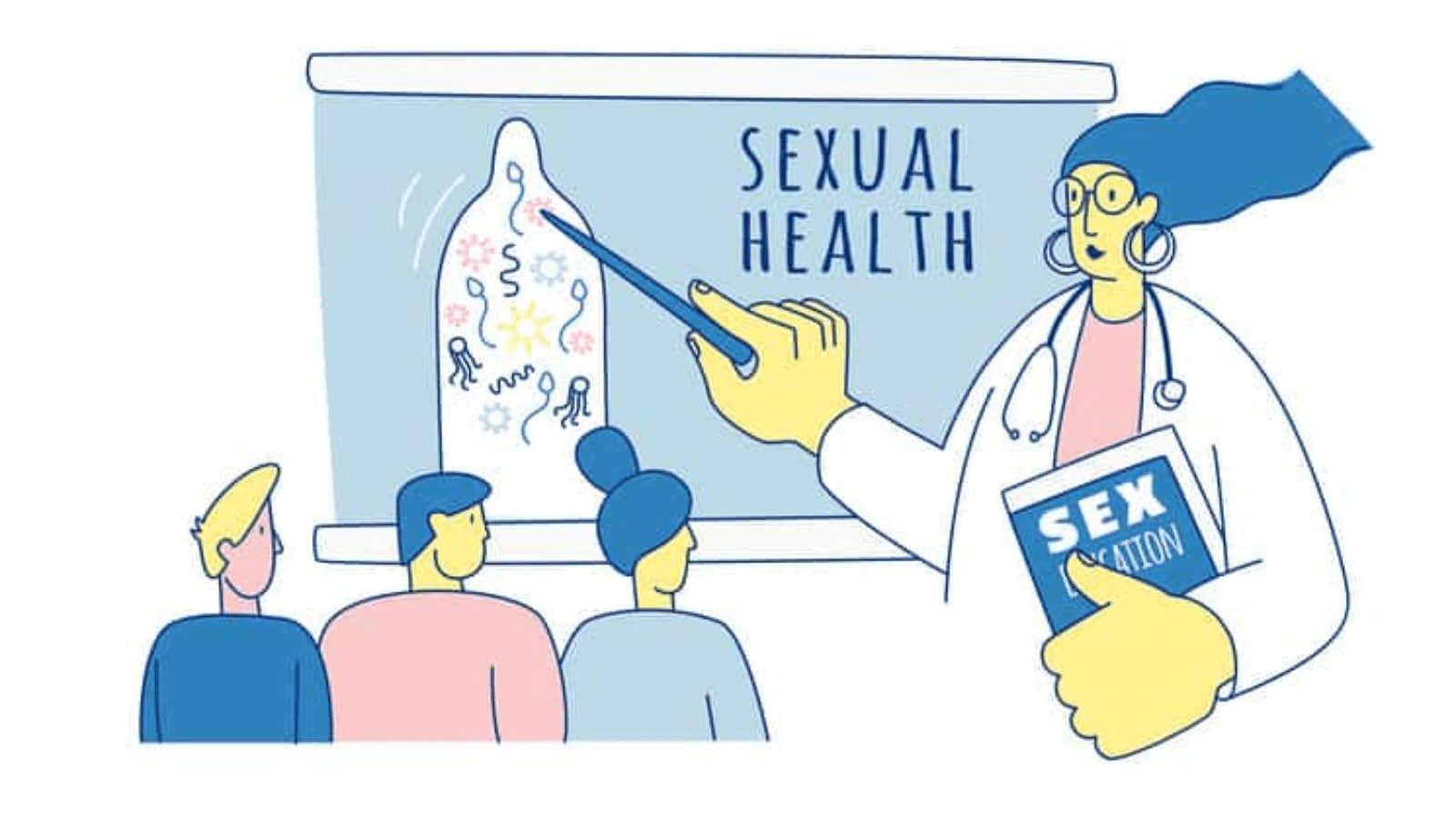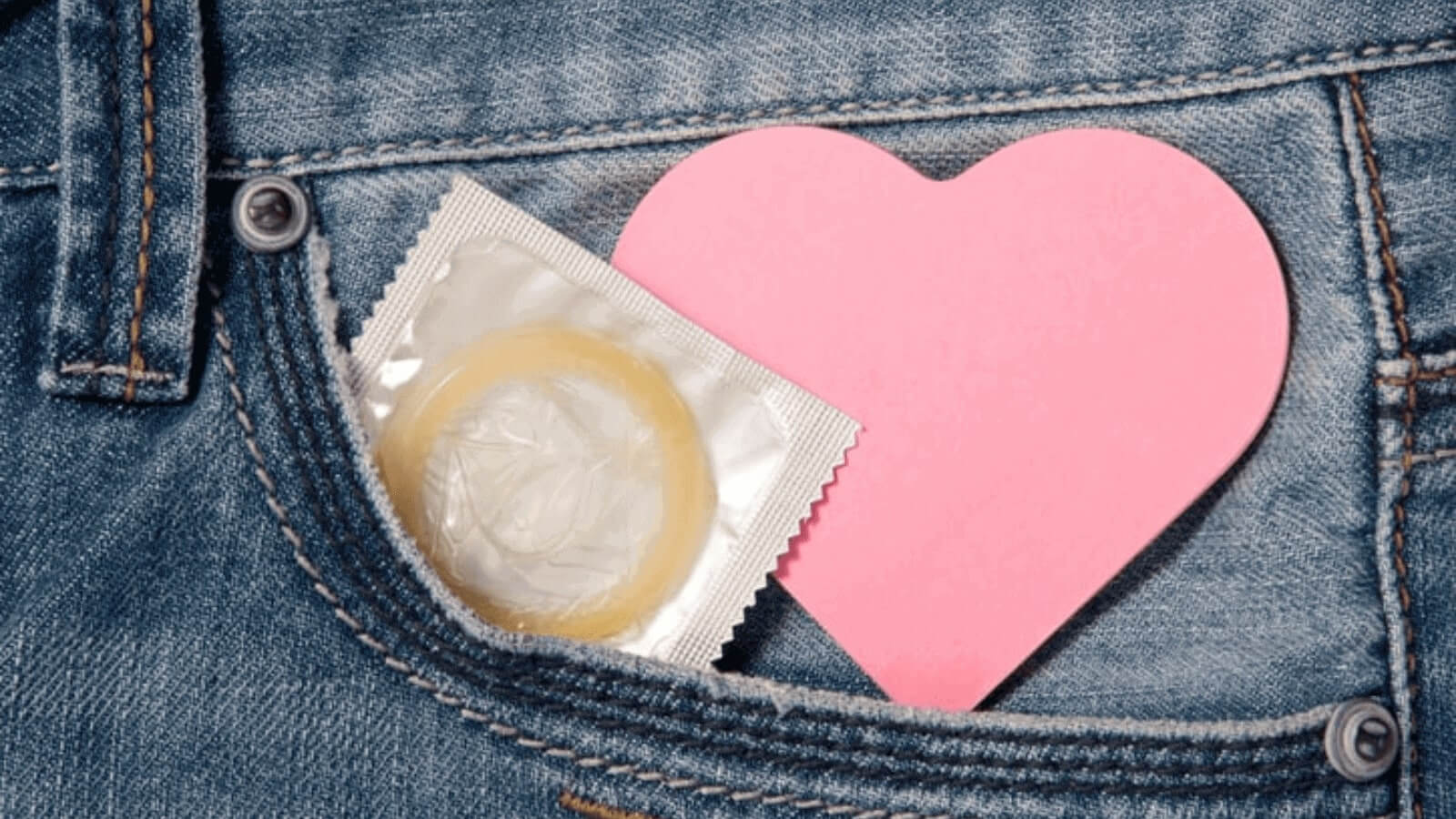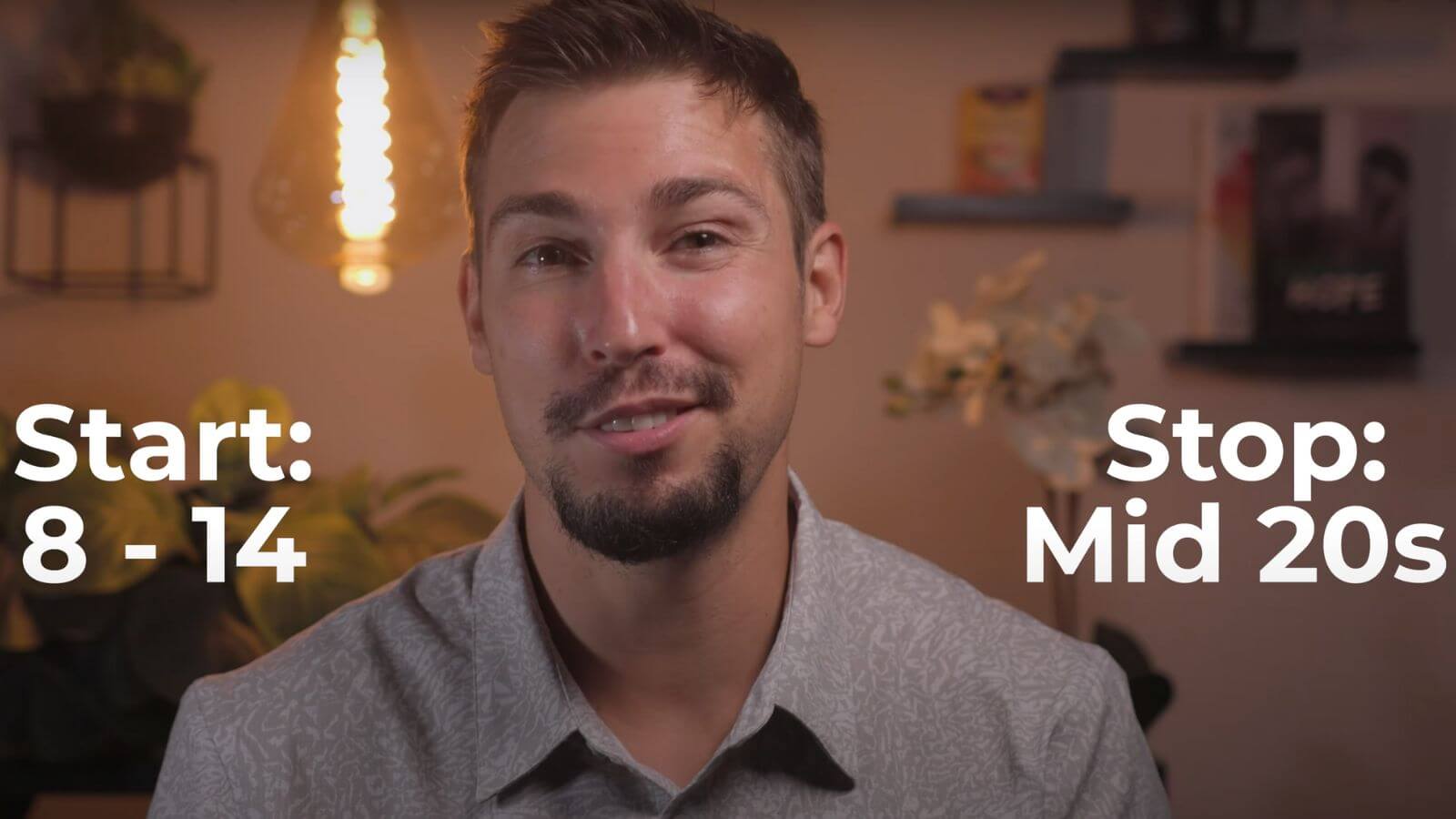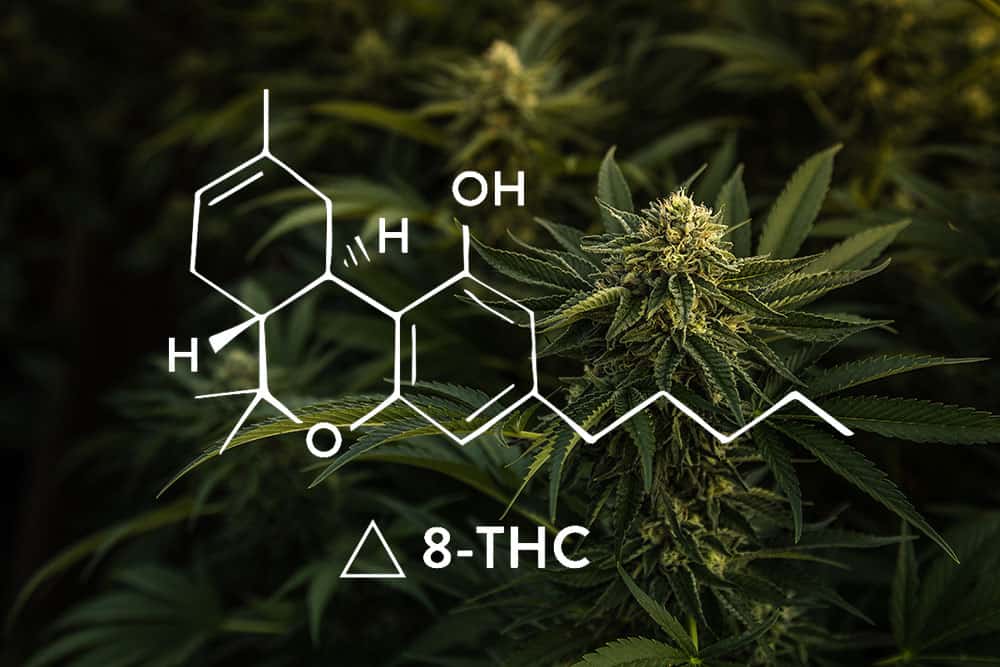When Do Teenage Hormones Start?
According to the National Institute on Drug Abuse (NIDA), “The hormones that change around puberty — starting between age 8 and 14 — and last until the early 20s when adolescence ends.”
Your child might develop at a different rate than other kids. Teenage hormones are a part of adolescent development. Young people will have many physical, mental, and social changes from the beginning of puberty into young adulthood.
While pubertal development occurs at varying years of age for kids, they might worry about being the “average age” to begin maturation into a young adult.
The teen years are a transition from childhood to adulthood. The adolescent brain and body develop greatly during this time. When teen hormones begin, your child will grow and change while learning to manage their emotions.
During this time, teens begin to make decisions for the first time that will impact the rest of their lives. They might begin exploring their sexuality, plan their careers, choose to go to college or not, think about living on their own, and make other crucial decisions.
Teen hormones are necessary for a child’s growth, development, and maturation.
The hormonal changes that occur can appear out of control and overwhelming for both parents and teens. As your teenager matures, they will develop their prefrontal cortex. This part of the brain is important to planning and decision-making.
Many of the changes of puberty will be seen physically as well as behaviorally. Your teenager will begin to look more like an adult through these years due to the influence of hormones on their bodies.

What Are The Physical Effects Of Teen Hormones?
The primary physical effects of teen hormones are gaining body mass and sexual development.
Teen hormones can impact behavior and mood as kids go through the stages of puberty. Adolescent boys and girls will develop different primary and secondary sexual characteristics.
During puberty, transgender teens might begin hormone therapy in addition to their social transition to their identified gender.
According to Neuropsychopharmacology, “there is now growing evidence suggesting that gender-affirming social support and GAHT [gender-affirming hormone therapy] are linked to better mental health outcomes.”
Regardless of gender, hormones play an important role in human development.
At the beginning of puberty, the brain releases gonadotropin-releasing hormone (GnRH). GnRH triggers the pituitary gland, which sets off many of these developmental changes. The pituitary gland produces growth hormone and others essential for human development.
Aside from a growth spurt, these hormones are responsible for many physical changes.
Adolescent boys are primarily influenced by a group of hormones called androgens. Girls also produce androgens in their ovaries but at lower levels than boys.
During the teenage years, the sex hormones of testosterone and estrogen influence your primary and secondary sexual characteristics. While men and women have both sex hormones, the dominant sex hormone for men is testosterone; for women, estrogen.
While both teenage girls and boys share several of the same hormones, the difference in the hormone levels of testosterone and estrogen distinguishes young women from young men.
Boys and girls will see changes with some similarities as they grow into young adults. Although sex hormones create differences between young women and young men, some physical changes occur regardless of gender.
Changes in all genders include:
- More body hair, including the growth of pubic hair
- Growth spurts
- Increased sweating and body odor
- Skin changes, which may lead to acne
- Gaining weight and strength
- Getting second molars, and in some young people, third molars or “wisdom teeth”
You will see different changes in young people due to the differences in the primary hormones of teenage girls and boys. Teenage girls are influenced more by the hormone estrogen. Adolescent boys are affected by increasing levels of testosterone.

Adolescent girls and boys will also mature at different times and at different rates.
Generally, adolescent girls begin going through puberty earlier than boys, beginning their menstruation cycles about two years after puberty begins.
As teenage girls grow into young women, you will notice physical changes in:
- Breast development
- Hips widen
- External genitalia (the vulva) will grow in size
- Beginning of the menstrual cycle
For teenage boys, you will notice some of the following physical changes:
- Facial hair appears
- Enlargement of penis, testes, and scrotum
- Voice changes to a deeper tone
- Nocturnal ejaculation (wet dreams)
The physical growth and change during puberty can be stressful for kids. They might worry about how quickly they change or if they develop at the same rate as their peers. Adolescents might compare themselves to one another.
During this time, your kids might deal with other issues. They might engage in risk-taking behaviors, like drug use or sexual behavior. They might deal with self-esteem and mental health issues.
During the teenage years, your child will develop physically while managing a lot of other issues. You might notice changes in behaviors and mood that coincide with the physical changes of puberty.

How Do Hormones Affect Teen Behavior and Mood?
Hormones affect teenage behavior and their mood because teenagers are still in the early stages of brain development.
The adolescent brain continues to develop into young adulthood. Teenagers do not have the coping skills or brain development to manage these changes in their bodies. As these new hormones affect a teen’s emotions, they might struggle to regulate emotional responses.
Hormones also affect other functions of life besides growth and emotion. Hormonal changes also impact sleep cycles, managing stress, appetite, sexual development, and other aspects of living.
Along with sex and growth hormones, teens are also getting their first experience with stress hormones like cortisol that impact their overall health. These hormonal changes will affect your teen’s behavior and mood as they learn to manage these new feelings.
Your teen might have some mood swings or irritability as they go through these changes. Some mood swings can be expected and normal as your child learns to cope with these emotions.
Other teens might really struggle or develop mental health issues during the teenage years.
Parents should be aware that some mental health problems can look like normal teenage angst. While teen hormones might cause mood swings, it is important not to overlook any mental health concerns, like depression.

Do Teen Hormones Cause Depression?
While teen hormones can cause mood swings, depression is caused by many different factors.
You don’t want to assume that depression is caused by teen hormones. You might dismiss a serious mental health issue as just a “phase” or part of growing up. The teenage years can be challenging for young people and can take a toll on their mental health.
During the teen years, young people experiment with their identity, beliefs, values, and sexuality. They might appear like one person one day and then try a different identity the next. As a parent, you might dismiss depression as one of these changes.
Teens are also learning to cope with emotions. They might feel up and down, and that is normal. By knowing what is going on in your child’s life, you can have some context for their moods.
Depression is when the sadness does not go away.
The National Institute on Mental Health (NIMH) states that your child might be depressed if they are “feeling sad most of the time for a few weeks or longer” or are “not able to concentrate or do the things [they] used to enjoy.”
The following can be signs of depression in teens:
- Feeling sad, guilty, or worthless most of the time
- Loss of interest in activities
- Easily “set off” into anger or feeling irritable
- Spending more time alone
- Withdrawing from friends and family
- Lower grades and poor academic performance
- Feeling tired or fatigued often
- Being forgetful
- Expressing suicidal thoughts or ideations
If your teenager expresses suicidal thoughts, this is a sign that something is going wrong.
Anytime a teen talks about suicide, you should take these expressions seriously and get them help right away. It is always best to be safe and get professional help when dealing with serious issues like suicide.
Suicidal ideations are a significant sign of mental health issues like depression. Parents might think their teen is just saying things like this for attention or due to hormones. However, depression is not a part of normal adolescent development.
Always rule out any physical health issues with your healthcare provider. Some of the physical changes that teens go through can look similar to depression, so always seek help from a trusted healthcare professional.

How To Talk With Teens About Sex And Sexuality
Talking to your teen about sex and sexuality is important for them to engage in healthy and safe sexual behavior.
According to the Centers for Disease Control and Prevention (CDC), “Studies have shown that teens who report talking with their parents about sex are more likely to delay having sex and to use condoms when they do have sex.”
Further, the CDC says that kids are most influenced by their parent’s values toward sex and are influenced by parents more than siblings, friends, and the media when making decisions about sexual behavior.
Talking to your kids about sex and sexuality can be challenging. However, your kids are going to have questions about sex. If you aren’t going to talk to them, they will look for information elsewhere.
Your teens might be waiting for you to approach the topic of sex and sexuality with them.
If you wait for your teens to bring up difficult topics to you, these important conversations are unlikely to occur. Get ahead of this by bringing these topics to them. You will let them know that you care about them and that they can talk to you about sexual behavior.
When talking to your kids about sex and sexuality, keep the following tips in mind:
- You might not find the “perfect time,” so tell your teen that you would like to talk one on one with them
- Try to be flexible and don’t interrupt what they are doing, or they might be distracted thinking about getting back to what they were focused on.
- If they are doing homework, watching TV, or playing video games, say, “Can we talk in about ten minutes?” or “When you get to the next level, pause the game for a few minutes so we can chat.”
- Many TV shows have sexual behavior in their plotlines. You can talk about how the topic of sex and sexuality relate to the show.
- Have conversations somewhere private
- Make sure that you are in a place without distractions and give your teen your full attention.
- The car can be a great place to talk if it is just you and your kid.
- Start by asking what they learn in high school about sex during health class.
- This can be easier to open the door because it will feel like you are talking about what they learned in school.
- By asking what your kid already knows about sex and sexuality, you can get a sense of the information that they have.
- Be open and relaxed
- Ask your teen if they have questions for you about sex.
- If you don’t have the answers they need, be honest and say that you will help them find the answer.
- Don’t overreact to anything your teen tells you!
- Your teen might have experiences or questions that shock you.
- Be sure not to overreact or else they might not feel comfortable going to you or get the impression that something is wrong with them.
- Try to keep the conversation ongoing instead of just having “the talk” once
- Having “the talk” can put a lot of pressure on both you and your child.
- Keep the conversation ongoing and have a few conversations over time.
- Although you should have some face-to-face talks, be open to texting or other forms of communication that your child might be more at ease using
- Give your kids privacy when talking with healthcare professionals
- Your teen might have questions for the doctor that they want to ask in private.
- Offer to leave the room if your teen wants to ask questions their physician about sex and sexuality.

The CDC also recommends that you focus on specific topics with your teen:
- Talking about the importance of building healthy and respectful relationships
- Sex is not just about the physical act but the relationships involved as well.
- Your teen might have questions about dating that come up during talks about sex or lead into those discussions.
- Provide information for your teen about safe sex practices
- Talk about protection and birth control and the benefits of protection from getting pregnant or contracting an STD
- Give your teen information on where they can go for STD/HIV testing or get other information about sex and sexuality
Your teen might also experiment with their sexuality in a way that makes you feel uncomfortable or unsure of how to talk with them.
If your teen identifies as LGBTQ+, they are more vulnerable to substance abuse and might have self-esteem or mental health issues. Family support is especially important for the health of LGBTQ+ teens and young adults.
According to Youth.gov, “Research demonstrates a strong link between family rejection of LGBT youth and negative physical and mental health outcomes . . . [i]n contrast, family acceptance can serve as a protective factor against depression, substance use, and suicidal ideation and attempts.”
When talking to your teen about their sexuality, be open and be honest. When you don’t know an answer, help them find the information. You can also ask them to teach you about their experiences.

Can Teen Hormones Cause Substance Abuse Or Addiction?
Teen hormones and sexuality don’t cause substance abuse or addiction, but they might be risk factors.
Teenagers feel their hormones with greater sensitivity than adults. Since the teenage years are a time for kids to explore the world to develop their identity, they are more likely to engage in risk-taking behaviors, like unsafe sex or substance use.
Remember that taking risks isn’t always unhealthy. For example, you might move to a new town or apply for a job to improve your life. These things are also risks but are healthy as they can lead to better things.
Your teen will want to take risks during this time as part of the process of growing up. You can help them take healthy risks, like trying new activities, outdoor exploration, making friends, and other things that put your kids “out there” into the world.
Teens with chronic pain, depression, anxiety, self-esteem issues, or other mental health problems might use substances to self-medicate.
Teen hormones do not necessarily cause mental health issues. However, many parents assume that mental health issues are “just a phase,” teenage angst, or “hormones acting up.” If you’re in doubt, talk to a professional about your teen’s mental health.
Your teen will go through ups and downs with the many hormonal changes they experience. You can help to support them through this important part of human development and maturation. Parents are crucial to helping teens become healthy, well-adjusted young adults.
Your teenager might go through ups and downs as hormonal changes influence their thoughts and behaviors. Sandstone Care is here to support teens and young adults with mental health and substance use disorders. Call (888) 850-1890.





